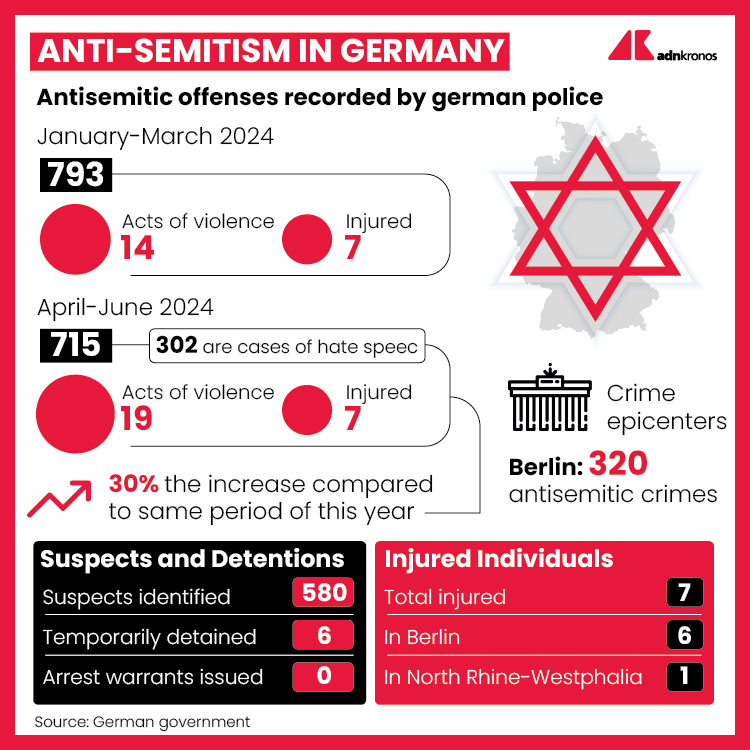

German police authorities recorded 715 antisemitic offenses in the second quarter of this year, including 19 acts of violence with seven people injured, an increase of 30% compared to the same period last year. Compared to the first quarter of the year, the trend is slightly downward: for the period from January to the end of March, the same statistics showed 793 offenses, including 14 acts of violence and seven injuries.
The figures are contained in a response by the German government to a question from Left Party deputy and Bundestag (Parliament) Vice President Petra Pau. "The antisemitic crimes ascertained by the authorities remain at a high level," Pau, who has been regularly analyzing the figures for years, told Dpa.
"The numbers clearly show it: the spread of antisemitic resentment repeatedly leads to active violence. Jews still do not feel safe in public spaces. Whether it's at university, in a bar or at the supermarket: hostility can currently nestle anywhere," Pau said.
Pau also warned that a further increase is to be feared, as the various crises continue to worsen. The number of episodes and crimes of anti-Semitism has also increased significantly in Germany, following the Hamas attack on Israel on 7 October 2023. The data are sometimes confusing and difficult to compare because, for example, the reporting centers of the Rias network record cases according to different standards than those of the Police.
In its response to Pau, the Interior Ministry refers to official statistics on politically motivated crimes, although this is preliminary data, which could still change due to reports not yet sent. Of the 715 antisemitic offenses recorded from April to June, 302 are cases of hate speech. Of all criminal offenses, 298 cases fall into the category of "foreign ideology". According to the Ministry, another 256 crimes fall into the category of "politically motivated right-wing extremist crimes", including two acts of violence.
Statistics from the left spectrum show twelve crimes, two of which were violent. Other categories of motivation are "religious ideology" (90 cases) and "other categorizations" (59 cases). The epicenter is Berlin, where 320 anti-Semitism-related crimes were recorded. According to the data, a total of 580 suspects were identified. Six people were temporarily detained, although no arrest warrants were initially issued. Of the seven people injured as a result of the recorded antisemitic violence, six were attacked in Berlin and one in North Rhine-Westphalia, in the west of the country.